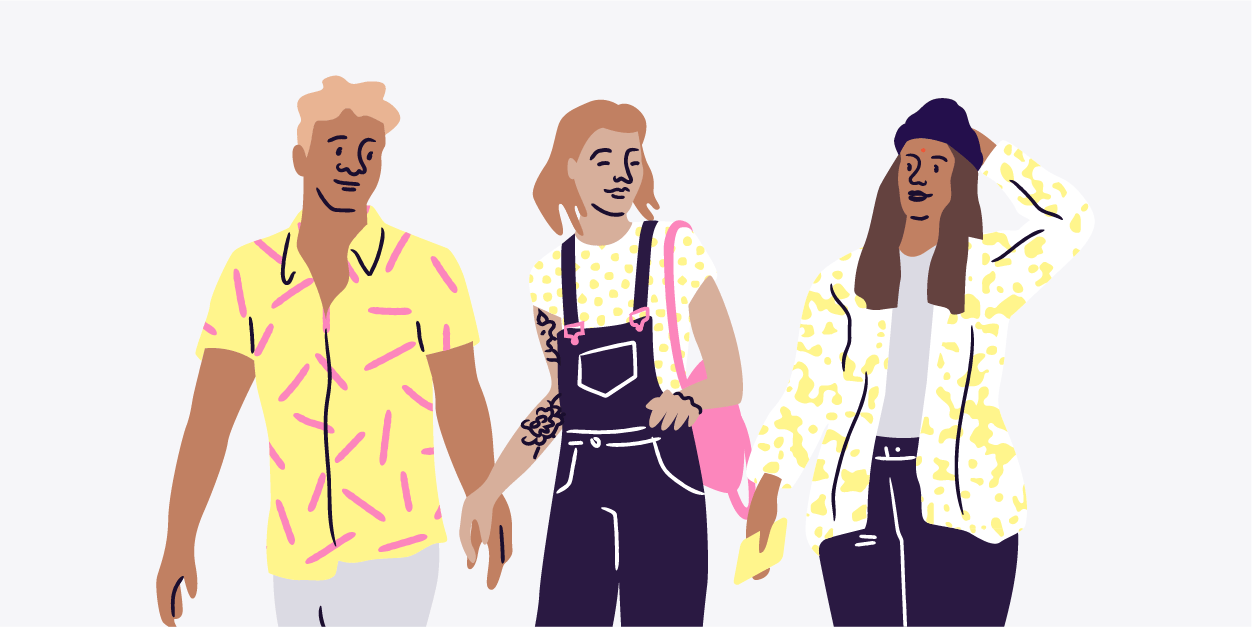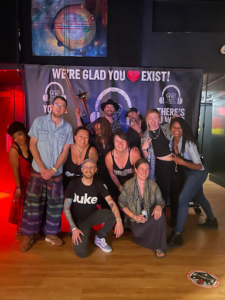World Mental Health Day occurs every year on October 10, and many groups and companies like to celebrate it with events that raise awareness and work to reduce the stigma around mental health topics. By planning mental health events, companies can show support for their employees and connect with their community.
As a creator, it can be tricky to plan an event that acknowledges the gravity of important issues but is still fun and engaging. We’ve collected some key tips for planning and promoting World Mental Health Day events that will help you pull off an impressive event.
What is World Mental Health Day?
World Mental Health Day was first celebrated in 1992, under the direction of The World Federation for Mental Health, with the goal of promoting mental health advocacy and education. Since 1994, the day has been celebrated with a theme that ties into current world events. This awareness day is supported and magnified by important agencies such as the World Health Organization and the United Nations. Localized events can also do their part to help spread awareness of important issues surrounding mental health by educating the community and potentially raising funds for charitable organizations that advocate for mental health programs and legislature.
Tips for organizing your World Mental Health Day event
When planning an event for an awareness day, it’s important to think ahead so you can organize everything you need. This is especially necessary if you’re interested in working with other organizations or sponsors because your partners will need time to prep for the event as well. Read on for further ideas on how to host a mental health event.
Engage the community
Mental health issues are community issues — whether within the global community or your local community. Do some research on organizations near you that provide mental health resources or education, and see what kinds of events they see as partnership opportunities. You may want to consider offering this organization a free table at your event or an advertisement in your program for them to spread the word about the work they do, particularly if they’re nonprofits.
Keep it on theme
World Mental Health Day has a new theme every year based on mental health issues that are currently impacting the world. Previous themes have focused on areas such as suicide prevention, the effects of chronic physical illness on one’s mental health, and providing mental health to the masses in a world full of inequality. General mental health advocacy is important, but be sure to keep the current theme in mind when you’re organizing your event so you can raise awareness around the specific issue. Think about how the theme relates to the goal of your event, whether that’s supporting employees, raising money for charitable organizations, or increasing brand awareness.
Find the right people
Not every sponsor or partner will be appropriate for mental health awareness day events. Consider the mission and values of the organizations you’re working with and the commitments they’ve made, if any, to support the mental health of their employees, customers, or audience.
If you’re looking to have entertainment at your event, invite performers who have a personal connection to mental health causes. Artists or performers who regularly use their public platforms to advocate for mental health issues or work closely with nonprofit organizations centered around mental health are ideal candidates.
Marketing your World Mental Health Day event
You can organize an excellent mental health community event, but you may not draw the crowd you’re hoping for without a solid promotional plan. Follow our advice for marketing your event in a way that will excite your audience.
Work out your audience
The foundation of any successful marketing plan is a thorough understanding of who you’re targeting with your promotional efforts and what action you want those people to take. It might be tempting to engage a broad audience, but by trying to reach everyone you run the risk of creating an unfocused marketing campaign that doesn’t appeal to anyone.
Consider what the members of your ideal audience will have in common, such as their interests, where they live, and what they care about. If you’re not sure how to target the potential attendees you have in mind, Eventbrite Boost’s Smart Audiences tool helps you find the people you’re looking for and connect with them through your social advertising.
Get creative with socials
Encourage attendees to pause their social media scrolling and check out your event by posting engaging content. High-quality photos and video clips stand out in their feeds, especially if they’re offering a behind-the-scenes look at what your performers or speakers are doing to prepare for the event. Consider posting interviews as a teaser for the event and offer insight into what is going to be shared onsite. Engage your audience both before and during the event by creating a hashtag and encouraging people to use it when posting their own photos and videos of the experience.
Use your data
When you begin marketing your event, the first people you should be reaching out to are the people who have attended your previous events and the email contacts you already have. Offering early bird or loyalty discounts to these contacts is a great way to start selling tickets further before the actual event date.
The data you already have is also a great source of information about the audience you should be targeting. Take a look at the demographics of your subscribers or previous attendees, and use that information to target a similar group of people via social media advertising.
Hosting Your Mental Health Event on the day
Ensure that your mental health-focused event is a safe and comfortable space for all of your attendees by taking different needs into consideration.
Be inclusive
Taking care of one’s mental health looks different for everyone. Create an inviting experience for all attendees by making a serious effort to be accommodating. Consider finding a space that is accessible for attendees with mobility restrictions. If you’re providing food and beverages, it’s a good idea to have options available that satisfy a variety of dietary needs. Designate a particular area as a chill-out zone for those who may find crowds or lots of stimulation overwhelming, and have trained mental health professionals onsite.
Have a hybrid option
Hybrid events have become pretty common, and they’re a great model to consider when you’re deciding how you’re going to host a mental health event. Hybrid events have both an in-person and online aspect, both of which have unique approaches to attendee engagement, audiovisual considerations, and overall experience. Mental health virtual events appeal to those who may not feel comfortable attending an in-person event because of anxiety or other reasons. Hybrid events also allow you to reach a much larger audience than you would with a strictly local event. If you’re worried about potential issues that could cause your event to be postponed or canceled, creating an online event that will occur alongside an in-person event will give you a plan to fall back on if the in-person event doesn’t work out.
Getting started
Ready to start organizing your World Mental Health Day event? Explore other guides we have for planning relevant mental health experiences. Then, sign up with Eventbrite to create your event page and start selling tickets.






